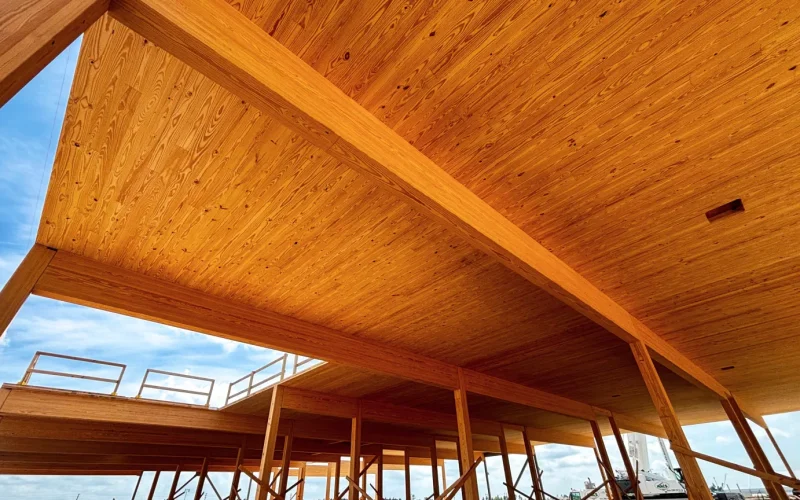Meta has begun incorporating mass timber into the construction of its data centre campuses in a bid to reduce carbon emissions associated with traditional building materials. The move is part of the company’s broader strategy to reach net zero emissions across its value chain by 2030.
While data centres continue to expand to meet growing global demand, Meta is focusing on minimising the embodied carbon—the emissions linked to the production, transport, and installation—of materials used in construction. Conventional data centres typically rely on high-carbon materials such as steel and concrete. In contrast, bio-based materials like wood tend to have a lower carbon footprint and can store carbon absorbed during tree growth.
In 2025, Meta completed its first administrative building using mass timber at its Aiken, South Carolina, campus. Further projects are underway in Cheyenne, Wyoming, and Montgomery, Alabama. The company plans to extend this approach to administrative buildings, warehouses, and potentially the data halls themselves.
Mass timber refers to engineered wood products, such as glue-laminated beams (glulam), cross-laminated timber (CLT), and mass plywood, that are suitable for industrial-scale construction. According to Meta, substituting these materials for steel and concrete in administrative buildings can cut embodied carbon by approximately 41%.
The adoption of mass timber also allows for quicker construction due to pre-fabrication, and reduces the volume of concrete required for foundations, potentially halving it in some cases. The material offers strength comparable to steel, has built-in fire resistance due to its density and char layer, and can be pre-assembled for specific applications.
Meta cites research suggesting that exposed timber in workplaces improves occupant wellbeing by fostering a connection to nature—an added benefit for staff working at data centres.
To ensure sustainable sourcing, Meta mandates third-party audits to verify that wood can be traced to its forest of origin. Suppliers are expected to follow practices that maintain ecological health and uphold fair labour conditions. In some cases, reclaimed wood is used where structural standards permit.
The company is also working with forestry partners such as BTG Pactual Timberland Investment Group in Brazil and EFM in Washington state to offset residual emissions and promote climate-smart forestry. This includes activities such as wildfire risk reduction, tribal partnerships, and forest restoration efforts.
Meta sees these pilot buildings as test cases for scaling low-carbon construction solutions and is encouraging broader industry adoption as part of the transition to a net zero future.





















